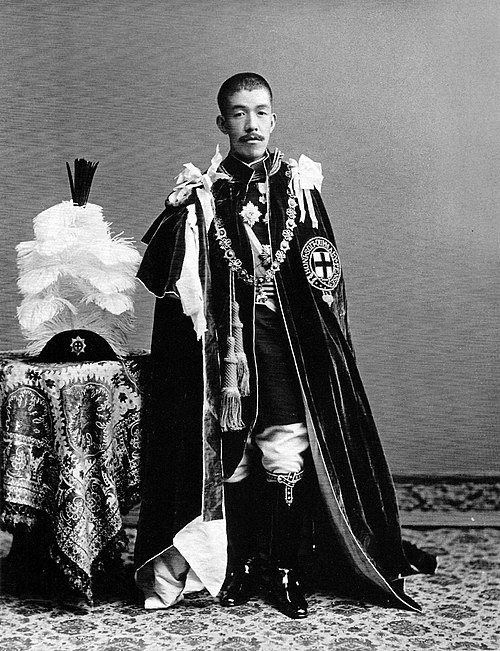Sernoun
(used in some fantasy novels) An address or courtesy title to any person, especially if their gender and/or form of address are unknown.
Sirnoun
A man of a higher rank or position.
Sirnoun
A respectful term of address to a man of higher rank or position, particularly:
Sirnoun
to a knight or other low member of the peerage.
Sirnoun
to a superior military officer.
Sirnoun
to a teacher.
Sirnoun
A respectful term of address to any male, especially if his name or proper title is unknown.
Sirnoun
(colloquial) Used as an intensifier after yes or no.
Sirverb
To address (someone) using "sir".
Sirnoun
A man of social authority and dignity; a lord; a master; a gentleman; - in this sense usually spelled sire.
Sirnoun
A title prefixed to the Christian name of a knight or a baronet.
Sirnoun
An English rendering of the LAtin Dominus, the academical title of a bachelor of arts; - formerly colloquially, and sometimes contemptuously, applied to the clergy.
Sirnoun
A respectful title, used in addressing a man, without being prefixed to his name; - used especially in speaking to elders or superiors; sometimes, also, used in the way of emphatic formality.
Sirnoun
term of address for a man
Sirnoun
a title used before the name of knight or baronet
Sir
Sir is a formal English honourific address for men, derived from Sire in the High Middle Ages. Traditionally, as governed by law and custom, is used for men titled as knights, i.e., of orders of chivalry, and later also applied to baronets and other offices.




